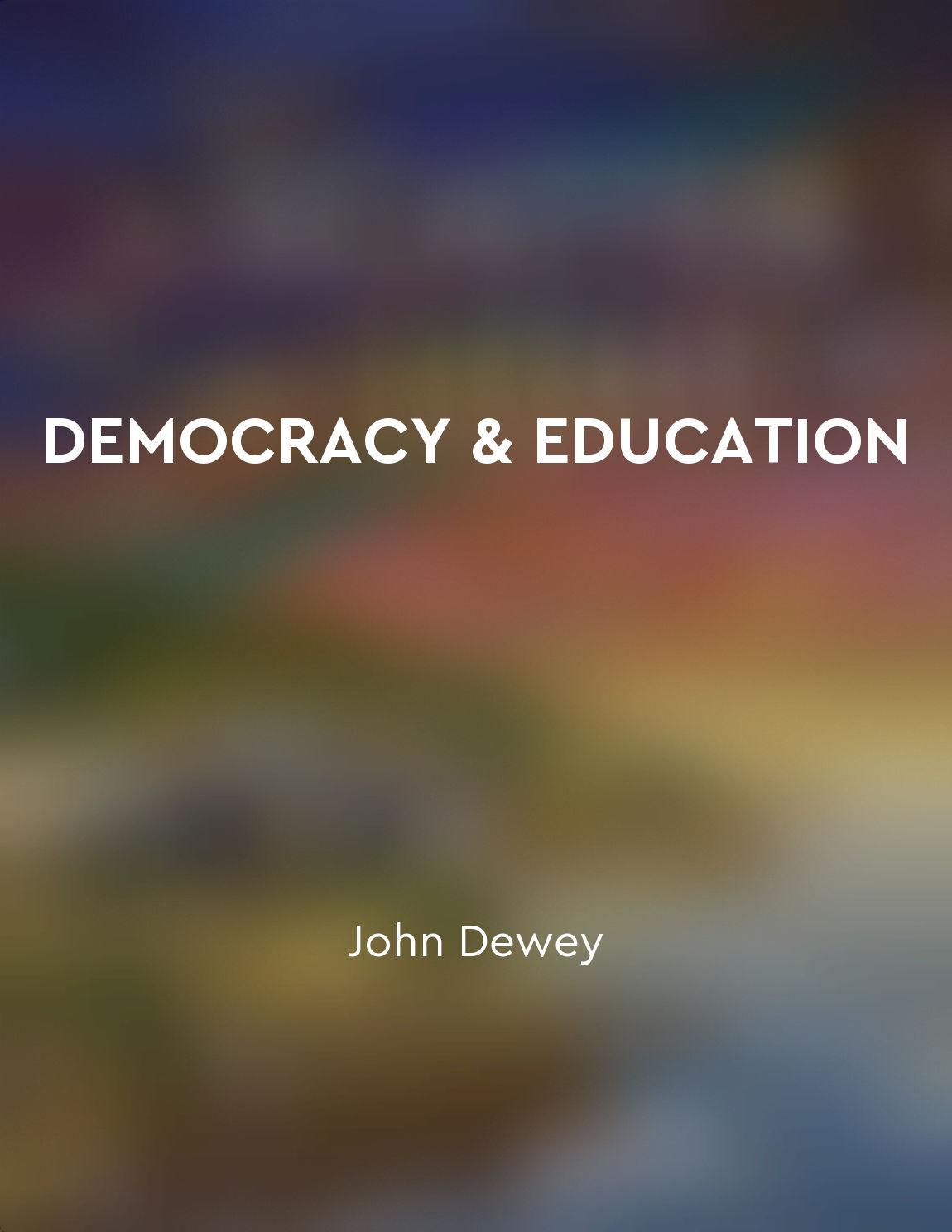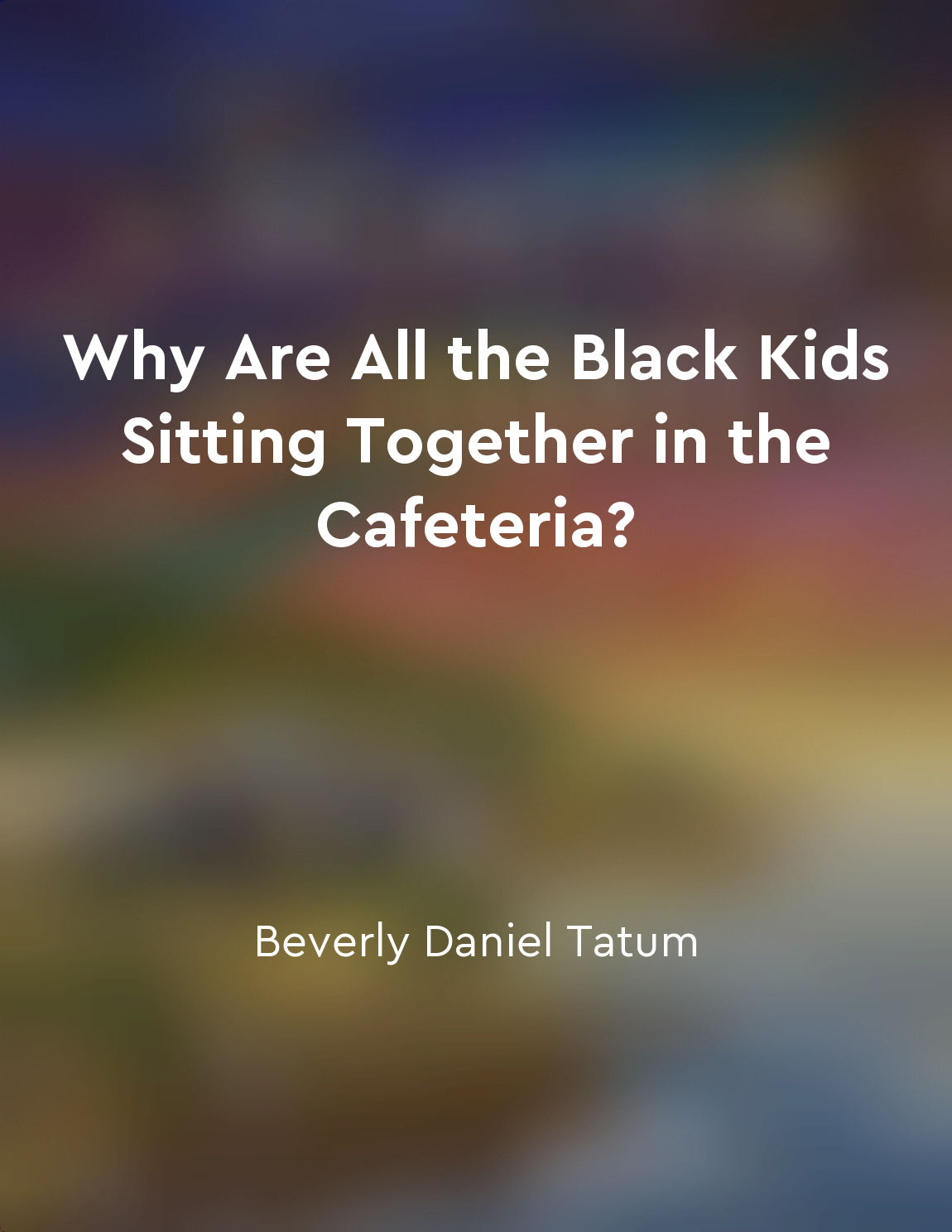The sociology of education offers critical insights from "summary" of Schools and Society: A Sociological Approach to Education by Jeanne H. Ballantine,Joan Z. Spade
The sociology of education provides valuable perspectives that allow us to critically analyze the complexities of the education system. By examining the social structures, processes, and inequalities within educational institutions, we can uncover the underlying issues that shape the experiences of students, teachers, and administrators. One key insight offered by the sociology of education is the recognition that schools are not neutral spaces, but rather sites where social and cultural dynamics play out. This perspective challenges us to question the ways in which power, privilege, and inequality manifest within educational settings. Through a sociological lens, we can understand how factors such as race, class, gender, and ethnicity intersect to create disparities in educational outcomes. Moreover, the sociology of education highlights the importance of examining the impact of broader social forces on schooling. By considering how economic, political, and cultural factors influence educational policies and practices, we can better understand the larger societal context in which schools operate. This critical analysis allows us to see beyond individual behaviors and outcomes, revealing the systemic inequalities that shape the educational experiences of diverse groups of students. Furthermore, the sociology of education encourages us to question taken-for-granted assumptions about the purpose and function of schooling. By exploring the historical roots of education and its role in social reproduction, we can uncover the underlying ideologies that shape educational practices. This critical perspective challenges us to consider alternative ways of thinking about education, opening up possibilities for transformative change within the system.- The sociology of education offers a powerful framework for analyzing and understanding the complexities of the education system. By examining the social, cultural, and structural dimensions of schooling, we can gain critical insights that challenge dominant narratives and pave the way for more equitable and inclusive educational practices.
Similar Posts
Boys and girls show variations in cognitive abilities from a young age
The concept that boys and girls exhibit differences in cognitive abilities, even from a young age, has been a topic of interest...
The intersectionality of race and class must be considered in educational policy
The relationship between race and class in educational policy cannot be ignored. When policymakers develop and implement educat...
Foster a sense of belonging
To truly create an environment where individuals feel like they belong, it is essential to go beyond mere inclusion. It require...
Cultural capital is a key driver of social mobility
Cultural capital, as defined by Bourdieu, refers to the cultural knowledge, skills, and habits that individuals possess. This f...

Learning is a social process
Learning is a social process because it involves interaction with others. When individuals engage with others, they have the op...

Stereotypes can influence behavior
Stereotypes are powerful forces that shape our perceptions of others and can influence our behavior towards them. When we hold ...

Creating inclusive environments requires effort
In order to create inclusive environments, individuals must be willing to put in the necessary effort. This involves actively w...
School segregation remains a reality
School segregation remains a reality in the United States, despite efforts to promote integration in schools. While the landmar...
Educational policies often neglect the needs of marginalized students
Meier and Stewart argue that the current educational policies in place often fail to address the specific needs of marginalized...
Liberation is a lifelong process
The process of liberation is not a simple task that can be achieved overnight. It is a continuous journey that individuals must...

